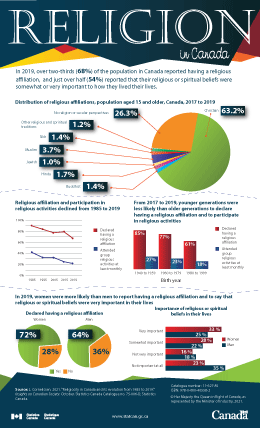Spiritual connections empower new immigrants

By Fabian Dawson
New Canadian Media
At his church in Surrey, Pastor David Drysdale has been witnessing a changing of the congregation over the past two decades.
What was once a place of worship frequented by a mainly white congregation, the Pentecostal Tabernacle of British Columbia today is the spiritual epicentre for New Canadians hailing from over 30 different ancestries.
“We have Jamaicans, South Americans, Africans, Indians, Filipinos and people from Hungary and Fiji, to name a few,” said Drysdale.
“Next January we are getting a new staff pastor from China,” he said.
“Religion plays a big role in the lives of new immigrants…Most bring a religious culture and background and when in Canada, going to church enhances their new lives,” said Drysdale.
“Ours is a place where new immigrants can develop their new lives in Canada with a new church family,” he said, adding he was not surprised at the latest data from Statistics Canada that shows significant changes in the nation’s religious landscape.
“Compared with individuals born in Canada, those born outside Canada were more likely to report having a religious affiliation, to consider their religious and spiritual beliefs important to how they live their lives, and to engage in religious activities in groups or on their own,” reported Statistics Canada in a recent analysis entitled Religiosity in Canada and its evolution from 1985 to 2019
These differences were more pronounced among younger birth cohorts, the national number-crunching agency said.
In terms of participation in religious or spiritual activities, the most significant difference between people born in Canada and those born outside Canada was for participation in group religious activities, the study found.
From 2017 to 2019, 36% of those born outside Canada participated in group religious activities at least once a month, compared with 19% of those born in Canada.
“The greater tendency among immigrants to attend religious services is often attributed to the importance of religious communities as a place of social integration, especially in the first years after arriving in the country,” the study stated.
Given that immigration is an important factor in Canada's population growth, Statistics Canada said it will be soon provide an updated picture of the nation’s religious diversity, using data from the 2021 Census.
Overall the study found that religious affiliation, the frequency of group and individual religious activities, and the importance of religious or spiritual beliefs in the way people live their lives have tended to decline in recent decades.
Here are some key findings of the study;
• In 2019, 68% of Canadians aged 15 and older reported having a religious affiliation. In addition, just over half of Canadians (54%) said they considered their religious or spiritual beliefs to be somewhat or very important to how they live their lives. Participation in group or individual religious activities was less common: 23% of Canadians said they participated in a group religious activity at least once a month, and 30% said they engaged in a religious or spiritual activity on their own at least once a week.
• Overall, reporting a religious affiliation is not necessarily related to placing a high importance on religion in everyday life. In fact, during 2017 to 2019, nearly one in five Canadians (18%) reported having a religious affiliation while indicating that they rarely or never participated in group religious activities, never engaged in religious or spiritual activities on their own, and considered their religious or spiritual beliefs to be of little or no importance to how they live their lives.
• In recent decades, there has been a decline in religious affiliation, participation in group or individual religious or spiritual activities, and the importance of religious and spiritual beliefs in how people live their lives. Changes in indicators of religiosity over time appear to be the result of differences between younger and older cohorts.
• Compared with individuals born in Canada, those born outside Canada were more likely to report having a religious affiliation, to consider their religious and spiritual beliefs important to how they live their lives, and to engage in religious activities in groups or on their own. These differences were more pronounced among younger birth cohorts.
• There were some differences in religiosity across the country. For example, in British Columbia, religious non-affiliation was more common and generational differences in religious practice were smaller. In Quebec, religious affiliation was higher, but was more often combined with lower importance given to religious or spiritual beliefs. Religious practice was also generally lower in Quebec. Lastly, in the Atlantic provinces, the generational differences were larger than elsewhere in the country.









